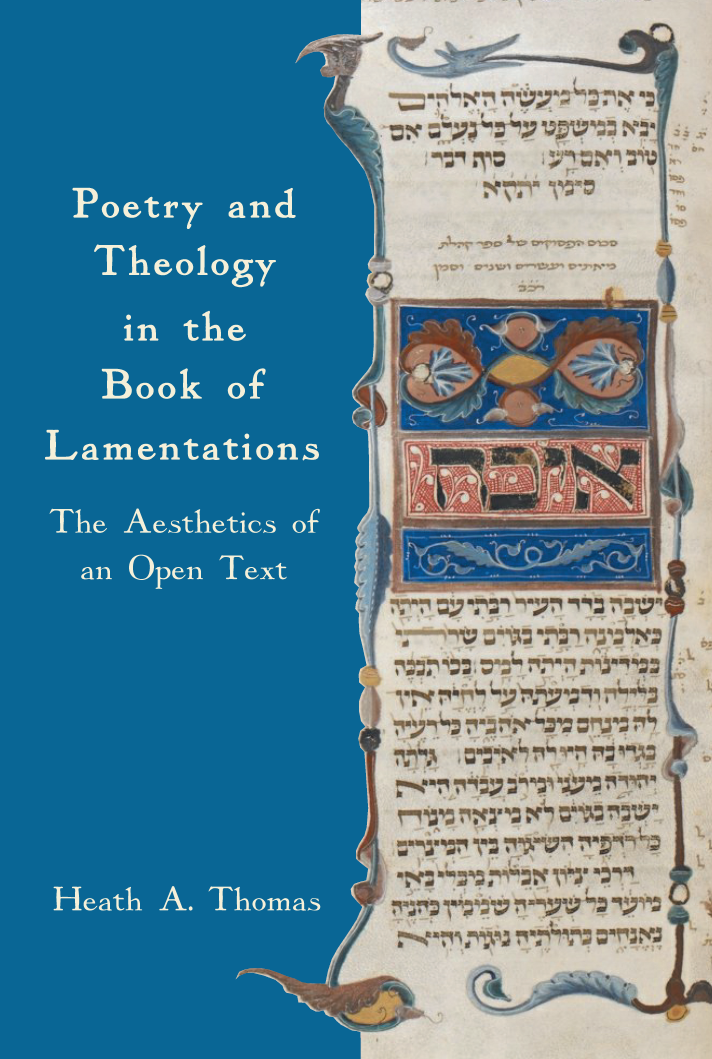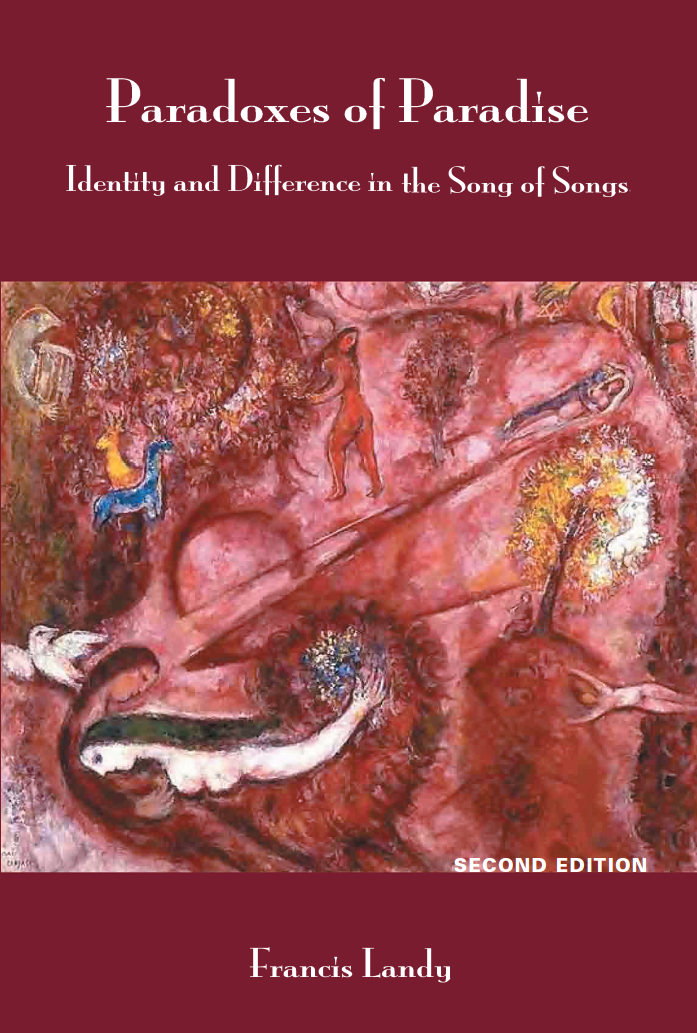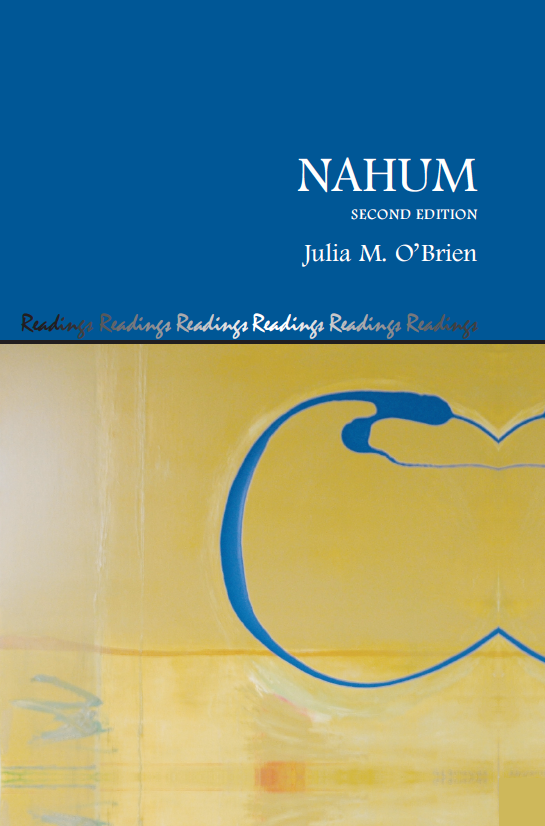Chorus in the Dark: The Voices of the Book of Lamentations
Published: Oct 2013
£60.00
Chorus in the Dark invites attention to the treaty negotiated by the voices of Lamentations. The issues of God's justice and human rights are at the centre of a forceful discussion embodied in the five poems of Lamentations. Difficult questions are subtly raised: How can God's justice be recognized and honoured in the midst of suffering? How can the human right to protest against mistreatment be respected? How can loss, grief, and shame be overcome? What future is there for the victims? How can these sensitive issues be negotiated without loss?
Zion is the first major speaker in Lamentations. Zion projects the voice of a woman crying by the grave. Her pain is intense, her loss is vast, her anger is uncontrollable. Zion is unable to see any future. God is indeed just in destroying her, but her surviving children do not deserve her fate.
The other major speaker is the man of Lamentations 3. He too speaks of the pain, grief, anger, and desire for vengeance of a victim bent under the yoke of affliction. Yet, like a Davidic king, he dares to claim covenant promises and hope that darkness will eventually turn to light.
Through both harmony and discord, and with a profound ambivalence toward the future, the separate voices of Lamentations resonate in a timbre that transcends the sum of its parts. The five poems, while having unique value individually, are meant to be read together as a living documentation of a moment of suspension, a great turning point in the history of Israel.
Chorus in the Dark: The Voices of the Book of Lamentations
£60.00
Chorus in the Dark invites attention to the treaty negotiated by the voices of Lamentations. The issues of God's justice and human rights are at the centre of a forceful discussion embodied in the five poems of Lamentations. Difficult questions are subtly raised: How can God's justice be recognized and honoured in the midst of suffering? How can the human right to protest against mistreatment be respected? How can loss, grief, and shame be overcome? What future is there for the victims? How can these sensitive issues be negotiated without loss?
Zion is the first major speaker in Lamentations. Zion projects the voice of a woman crying by the grave. Her pain is intense, her loss is vast, her anger is uncontrollable. Zion is unable to see any future. God is indeed just in destroying her, but her surviving children do not deserve her fate.
The other major speaker is the man of Lamentations 3. He too speaks of the pain, grief, anger, and desire for vengeance of a victim bent under the yoke of affliction. Yet, like a Davidic king, he dares to claim covenant promises and hope that darkness will eventually turn to light.
Through both harmony and discord, and with a profound ambivalence toward the future, the separate voices of Lamentations resonate in a timbre that transcends the sum of its parts. The five poems, while having unique value individually, are meant to be read together as a living documentation of a moment of suspension, a great turning point in the history of Israel.
Poetry and Theology in the Book of Lamentations: The Aesthetics of an Open Text
Published: Mar 2013
£60.00
The book of Lamentations is a challenge to its readers. Its ambiguous theology, strident protestations against its deity, and haunting imagery confound interpreters. This monograph engages the enigma of Lamentations by assessing its theology. It does so, however, neither by tracing a single theological perspective through the book nor by reconstructing the history of the composition of the book. Rather, Heath Thomas assesses the poetry of Lamentations by offering a close analysis of each poem in the book. He reconsiders the acrostic as the foundational structure for the poetry, reads the book as an intentionally composed whole, and assesses the pervasive use of repetition, metaphor, and allusion.
For the first time in the field, the analysis here is grounded on the insights of the Italian semiotician Umberto Eco. Drawing upon Eco's distinction between 'open' and 'closed' textualities, Thomas argues that Lamentations represents a distinctively 'open' text, one that presents its reader with a myriad of surprising avenues to interpret the poetry. This distinctive approach avoids a polarization in the portrait of God in Lamentations, arguing that its poetry neither justifies God outright nor does it exonerate God's people in the exilic age. Rather, it enables these theological visions to interrelate with each another, inviting the reader to make sense of the interaction.
The ambiguous theological vision of Lamentations, then, is not a problem that the reader is intended to overcome but an integral feature in the construction of meaning. This original monograph offers a new perspective on how the poetry informs our appreciation of theological thought in the exilic age.
Poetry and Theology in the Book of Lamentations: The Aesthetics of an Open Text
£60.00
The book of Lamentations is a challenge to its readers. Its ambiguous theology, strident protestations against its deity, and haunting imagery confound interpreters. This monograph engages the enigma of Lamentations by assessing its theology. It does so, however, neither by tracing a single theological perspective through the book nor by reconstructing the history of the composition of the book. Rather, Heath Thomas assesses the poetry of Lamentations by offering a close analysis of each poem in the book. He reconsiders the acrostic as the foundational structure for the poetry, reads the book as an intentionally composed whole, and assesses the pervasive use of repetition, metaphor, and allusion.
For the first time in the field, the analysis here is grounded on the insights of the Italian semiotician Umberto Eco. Drawing upon Eco's distinction between 'open' and 'closed' textualities, Thomas argues that Lamentations represents a distinctively 'open' text, one that presents its reader with a myriad of surprising avenues to interpret the poetry. This distinctive approach avoids a polarization in the portrait of God in Lamentations, arguing that its poetry neither justifies God outright nor does it exonerate God's people in the exilic age. Rather, it enables these theological visions to interrelate with each another, inviting the reader to make sense of the interaction.
The ambiguous theological vision of Lamentations, then, is not a problem that the reader is intended to overcome but an integral feature in the construction of meaning. This original monograph offers a new perspective on how the poetry informs our appreciation of theological thought in the exilic age.
Paradoxes of Paradise: Identity and Difference in the Song of Songs, Second Edition
Published: May 2011
£22.50
Rabbi Akiba is famously reported to have said, 'Heaven forbid that any one in Israel ever disputed that the Song of Songs is holy, for the whole world is not worth the day on which the Song of Songs was given to Israel, for all the writings are holy, but the Song of Songs is the Holy of Holies'. This book is an extended elaboration of Rabbi Akiba's statement. It argues that the Song is a Hellenistic composition, drawing on the resources of ancient Near Eastern erotic poetry and characterized by a complex though fragile unity.
Through the metaphors, the lovers progressively see themselves reflected in each other, as well as in the world about them and the poetry of love. The poem celebrates the land of Israel in spring, an ideal humanity, and a perfected language. It culminates in the contestation of love and death, and the assertion that only love survives the exigencies of time.
The pervasive ambiguity of the Song, in which one never quite knows what happens, is related to the ambivalence of beauty, which is closely related to ugliness. Hence the surrealist imagery of the Song verges upon the grotesque and stretches the resources of our imagination. Through a detailed comparison with the Garden of Eden story, Landy argues that the Song is a vision of paradise seen from the outside, through the ironic poetic gaze, in a world potentially hostile or indifferent.
Paradoxes of Paradise: Identity and Difference in the Song of Songs, Second Edition
£22.50
Rabbi Akiba is famously reported to have said, 'Heaven forbid that any one in Israel ever disputed that the Song of Songs is holy, for the whole world is not worth the day on which the Song of Songs was given to Israel, for all the writings are holy, but the Song of Songs is the Holy of Holies'. This book is an extended elaboration of Rabbi Akiba's statement. It argues that the Song is a Hellenistic composition, drawing on the resources of ancient Near Eastern erotic poetry and characterized by a complex though fragile unity.
Through the metaphors, the lovers progressively see themselves reflected in each other, as well as in the world about them and the poetry of love. The poem celebrates the land of Israel in spring, an ideal humanity, and a perfected language. It culminates in the contestation of love and death, and the assertion that only love survives the exigencies of time.
The pervasive ambiguity of the Song, in which one never quite knows what happens, is related to the ambivalence of beauty, which is closely related to ugliness. Hence the surrealist imagery of the Song verges upon the grotesque and stretches the resources of our imagination. Through a detailed comparison with the Garden of Eden story, Landy argues that the Song is a vision of paradise seen from the outside, through the ironic poetic gaze, in a world potentially hostile or indifferent.
Nahum, Second Edition
Published: July 2009
Price range: £15.00 through £35.00
In its wanton celebration of violence, the book of Nahum poses ethical challenges to the modern reader. O'Brien offers the first full-scale engagement with this dimension of the book, exploring the ways in which the artfulness of its poetry serves the book's violent ideology, highlighting how its rhetoric attempts to render the Other fit for annihilation.
She then reads from feminist, intertextual and deconstructionist angles and uncovers the destabilizing function of the book's aesthetics.
Finally, she demonstrates how mining Nahum's ambiguities and tensions can contribute to an ethical response to its violence.
This is a reprint of the 2002 edition.
Nahum, Second Edition
Price range: £15.00 through £35.00
In its wanton celebration of violence, the book of Nahum poses ethical challenges to the modern reader. O'Brien offers the first full-scale engagement with this dimension of the book, exploring the ways in which the artfulness of its poetry serves the book's violent ideology, highlighting how its rhetoric attempts to render the Other fit for annihilation.
She then reads from feminist, intertextual and deconstructionist angles and uncovers the destabilizing function of the book's aesthetics.
Finally, she demonstrates how mining Nahum's ambiguities and tensions can contribute to an ethical response to its violence.
This is a reprint of the 2002 edition.





Hosea, Second Edition
Hosea, Second Edition